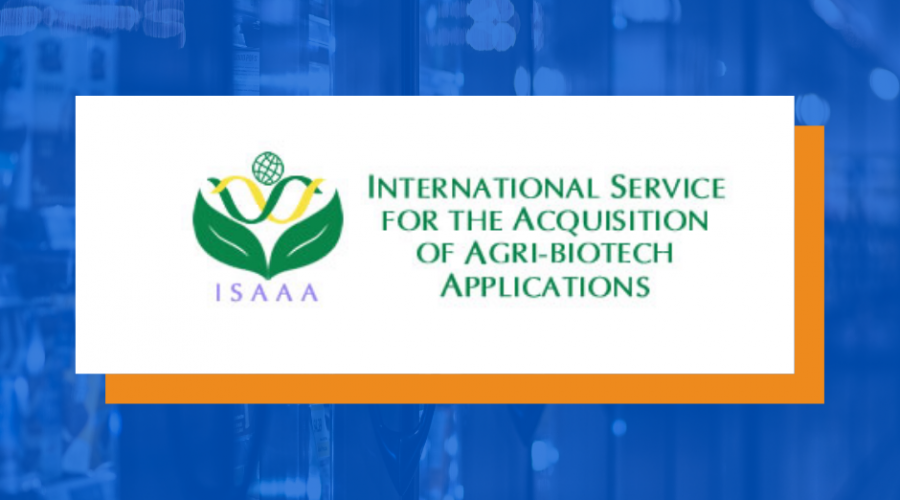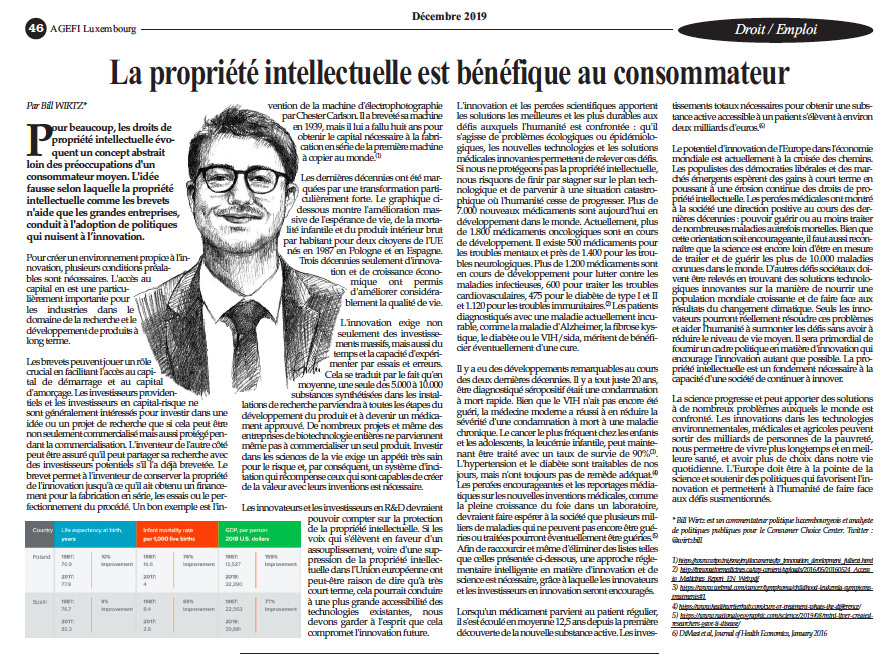Nous avons besoin de pesticides contre les espèces invasives
Avec toutes les tendances politiques demandant une absence complète de pesticides, rappelons-nous des pestes qu’il faut que nous évitons. Beaucoup de ces pestes représentent de vraies urgences pour notre système alimentaire.
Les espèces invasives sont des plantes et des animaux qui sont amenés dans un nouvel habitat et qui intimident les espèces indigènes au point où beaucoup ne peuvent pas survivre. Elles sont généralement plus robustes, plus exigeantes et se reproduisent beaucoup plus rapidement. Rien de neuf, rien d’inconnu. Il s’avère que le concept d’un fléau d’insectes est même un des symptômes les plus dévastateurs de la colère de Dieu dans la bible.
Dans le livre biblique de l’Exode, le huitième fléau que Yahvé inflige à l’Égypte est celui des sauterelles : “Elles couvraient la surface du sol jusqu’à ce que le sol en soit noirci. Elles dévorèrent toute la verdure du pays et tous les fruits des arbres que la grêle avait laissés. Il ne restait plus de verdure sur aucun arbre ou plante des champs dans tout le pays d’Egypte.”
En 2015, un tel fléau avait atteint la Russie, qui avait enregistré la destruction de 10% des récoltes aprèsune attaque monstrueuse par des milliers de sauterelles. Devant leur champs, des agriculteurs ruinés et désespérés. Leurs pertes sont énormes. Plus tard, des consommateurs confrontés avec des prix à la hausse, effet le plus bouleversant pour les ménages à faible revenu.
Se défendre contre les pestes
A travers les pesticides, la chimie moderne nous a donné les outils pour nous défendre contre les pestes sur nos champs et dans nos villes. Au lieu de perdre une grande partie de nos rendements, comme le souffraient nos ancêtres, ces produits nous ont garantis une plus grande sécurité alimentaire. De nos jours, les pesticides sont considérés comme indésirables. Certes, un produit chimique délicat nécessite une utilisation professionnelle et précise, et certainement pas tous les agriculteurs ont fait preuve de la même rigueur. Ceci dit, la démonisation générale de toute utilisation de pesticide ne revient pas à une politique intelligente ou même bon pour l’environnement.
Aux Pays-Bas, le Centre de connaissances et de conseils sur les animaux nuisibles avertit dans les principaux journaux que de nouvelles infestations de rats sont imminentes alors que le pays s’apprête à restreindre l’utilisation de la mort-aux-rats à partir de 2023. Il a déjà été interdit dans les zones extérieures, mais désormais l’utilisation à l’intérieur sera également interdite, comme l’indiqueRTL Nieuws.
L’invasion des rats à Paris nous en dit des mots. En janvier 2018, le gouvernement avait lancé une campagne anti-rats de 1,7 million d’euros pour réduire le nombre de rongeurs gênants. Un total de 4950 opérations anti-rats ont eu lieu entre janvier 2018 et juillet 2018 contre 1700 l’année précédente. Non seulement ces efforts ne se sont pas prouvés efficaces, ils n’ont pas non plus réussi à apaiser ceux qui désirent aucun effet humain sur l’environnement qui nous entoure. Une pétition en ligne dénonçant le “génocide des rats” et demandait la fin des exterminations. Ellea recueilli 26 000 signatures.
La réalité est aussi gênante que les gênants: nos villes ne sont pas à “partager” avec les rats, car sinon les conséquences de notre inaction mèneront à des problèmes de santé considérables. La même chose s’appliquent à d’autres espèces.
Des dommages annuels d’une valeur de 12 milliards d’euros
Une étude des chercheurs dans Biology Letters, dont la Français Céline Bellard PhD, a montré en 2016 que “les espèces exotiques sont la deuxième menace la plus courante associée aux espèces qui ont complètement disparu depuis l’an 1500”. Ils ajoutent: “Les espèces exotiques sont répertoriées comme ayant contribué à l’extinction de plus de la moitié de toutes les espèces de nos analyses, et de près des deux tiers des vertébrés.”
Dans l’Union européenne, ce problème est important. L’UE subit des dommages annuels d’une valeur de 12 milliards d’euros en raison des effets de ces pestes sur la santé humaine, des infrastructures endommagées et des pertes agricoles. Selonun rapport de l’année 2015, 354 espèces sont ainsi menacées: 229 animaux, 124 plantes et 1 champignon. Les espèces invasives incluent: les limaces espagnoles, la bactérie xylella fastidiosa, ou la longicorne asiatique. Le lecteur traditionnel n’aura aucun concept direct à quoi ils ressemblent, et puisqu’il n’y d’équivalences domestiques, il n’y aura probablement pas de pétition non plus.
La prudence envers les pesticides ne peut et ne doit jamais devenir une obsession idéologique. L’utilisation contrôlée, et scientifiquement basée restent une nécessité absolue pour nos agriculteurs et nos villes. Si nous arrivons pas à comprendre ce fait crucial, nous deviendrons notre propre fléau.
Originally published here.
The Consumer Choice Center is the consumer advocacy group supporting lifestyle freedom, innovation, privacy, science, and consumer choice. The main policy areas we focus on are digital, mobility, lifestyle & consumer goods, and health & science.
The CCC represents consumers in over 100 countries across the globe. We closely monitor regulatory trends in Ottawa, Washington, Brussels, Geneva and other hotspots of regulation and inform and activate consumers to fight for #ConsumerChoice. Learn more at consumerchoicecenter.org












